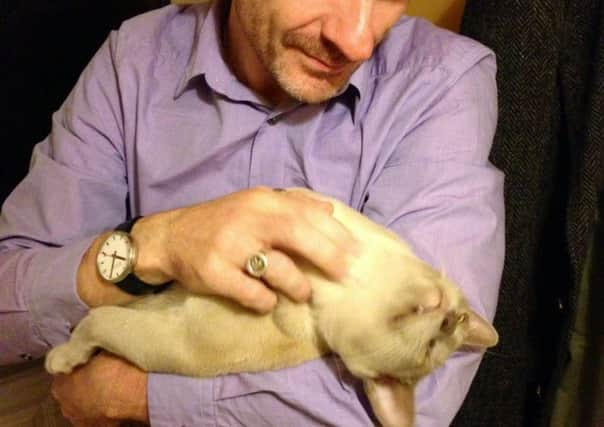Stories will linger long after Ullapool Book Festival


But then again, stories are invisible too. And as Tom Pow pointed out in an engaging session on Saturday that picked up on many of the themes already hanging in the Lochbroom ether, that’s what book festivals are: stories that follow their readers back home, invisible and leaving no mark on anything but memory.
What kind of stories? Some, like Pow’s own work on deserted villages, reached firmly back into the past. James Hunter, talking about his new book Set Adrift Among the World, about the human consequences of the Sutherland Clearances, fleshed out stories of villages’ deliberate destruction, wherever possible rescuing evicted women from what EP Thomson famously called “the enormous condescension of history”. Women like Jessie Ross of Ascoilemore whose life “began to be taken apart” on 31 May, 1821, when ten or so men, who had drunk a dozen bottles of bottles of whisky between them the previous night and a further three that morning, arrived to evict her, her two young daughters and her two-month-old baby.
Advertisement
Hide AdAdvertisement
Hide AdOne day, said Hunter, the Clearances will be reversed, and in places like Strathbrora – inhabited by humans for 50 centuries, almost uninhabited for two, they “will be seen as an indefensible departure from the way things were and the way they should have been”. Hunter is honest enough to realise that the Clearances are about more than land loss; those forced into emigration “were just as much a threat to the native peoples of Canada” as the sheep had been to their own futures.
The consequences of similar land grabs, as was pointed out in an event with British/Israeli historian Avi Shlaim, Palestinian lawyer Rajah Shehadeh and his wife, editor and academic Penny Johnson, are not lost in the Middle East. There, one of the bigger culprits is the “security wall” built not in Israel but on the West Bank. “They say good fences make good neighbours,” said Shlaim, “but not when the fence runs through the middle of the neighbour’s garden”.
Opening the festival, Janice Galloway pointed out one of the values of stories is they can highlight the divide our inner selves (chaotic, accidental) and the patina of order we like to impose on how we present ourselves to the outside world.
Kevin MacNeil, in The Brilliant and Forever – a book about a book festival, no less, and one that mixes wit and whimsy with deep wisdom – took that even further. We often like novels, he said, because the shape they give to life makes it feel less disordered. Writing a story about a talking alpaca entering an island’s book festival did at least free him from the temptations of template fiction – and was also the most fun he’d ever had to write. Judging by the audience reaction, it was fun to listen to too.
Other highlights? Helen Fitzgerald, for showstopping use of a swearword in her novel Viral; Merryn Glover and Fiona Rintoul, a double bill of debut fiction of the highest order; Norman Maclean for still being there – and still being funny, and Bernard MacLaverty for ending the festival with a his brilliant reading of a pitch-perfect short story A Belfast Memory from his Collected Stories.
And then, the Canadians. Uniquely, this festival has long had a mainline to the very best Canadian writing, and Lisa Moore and Lynn Coady did not disappoint.
Reading from her latest novel, Caught – about a 1970s drug importer on the run from the cops after breaking out of prison – Newfoundland’s Moore showed just what depths a literary novelist can bring to what could otherwise be a shallow crime fiction novel. For her part, Giller prizewinner Coady, a script editor for the Netflix series Orphan Black, conclusively demonstrated that writing about writing needn’t be self-indulgent and that the blurred line between fact and fiction is well worth following. Savvy, smart and bleakly funny, the story she read from an upcoming Faber anthology, Sex and Death, must surely have propelled her work to the top of the audience’s must-read list.
Advertisement
Hide AdAdvertisement
Hide AdFinally, the question I began with. What stays when the festival goes? Nothing you can see but stories. And as Kevin McNeil pointed out the Ullapool book festival – “open-hearted, friendly, egalitarian, life-enhancing, memorable” – provides some of the best you’ll find anywhere.
David Robinson